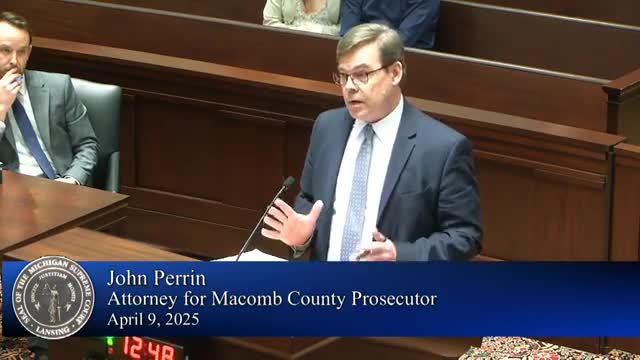Macomb County debates charter definitions amid conflict between elected officials
April 22, 2025 | Supreme Court Judicial Rulings ( Opinions ), Judicial, Michigan
Thanks to Scribe from Workplace AI , all articles about Michigan are free for you to enjoy throughout 2025!

This article was created by AI using a video recording of the meeting. It summarizes the key points discussed, but for full details and context, please refer to the video of the full meeting. Link to Full Meeting
One of the key points raised was the ambiguity surrounding the terms "ordinance" and "law" within the charter. Participants noted that the lack of clear definitions has led to confusion, particularly in sections 11.1 and 11.2, which attempt to outline the continuation of laws and ordinances. The prosecutor emphasized that the charter should be interpreted liberally to empower the county to address its internal issues without needing state intervention. This perspective underscores a desire for local autonomy in governance, allowing Macomb County to resolve conflicts independently.
The meeting also touched on the deteriorating relationship between the prosecutor and the corporation counsel, suggesting that personal conflicts may be complicating legal interpretations. The prosecutor argued that trust is fundamental to the attorney-client relationship, and when that trust erodes, it complicates legal proceedings beyond mere statutory or charter concerns.
Additionally, the prosecutor responded to suggestions from the executive's counsel to replace the term "law" with "ordinance" throughout the charter, warning that such changes could lead to significant legal complications. This highlights the importance of precise language in legal documents and the potential ramifications of misinterpretation.
Overall, the discussions at this meeting reflect deeper issues within Macomb County's governance structure, emphasizing the need for clarity in legal definitions and the importance of maintaining professional relationships among elected officials. As the county navigates these challenges, the outcomes of this dispute could have lasting implications for local governance and the interpretation of its charter. The next steps remain uncertain, but the focus on resolving these conflicts will be crucial for the county's future.
Converted from 167415 Macomb County Prosecutor v Macomb County Executive meeting on April 22, 2025
Link to Full Meeting
Comments
View full meeting
This article is based on a recent meeting—watch the full video and explore the complete transcript for deeper insights into the discussion.
View full meeting